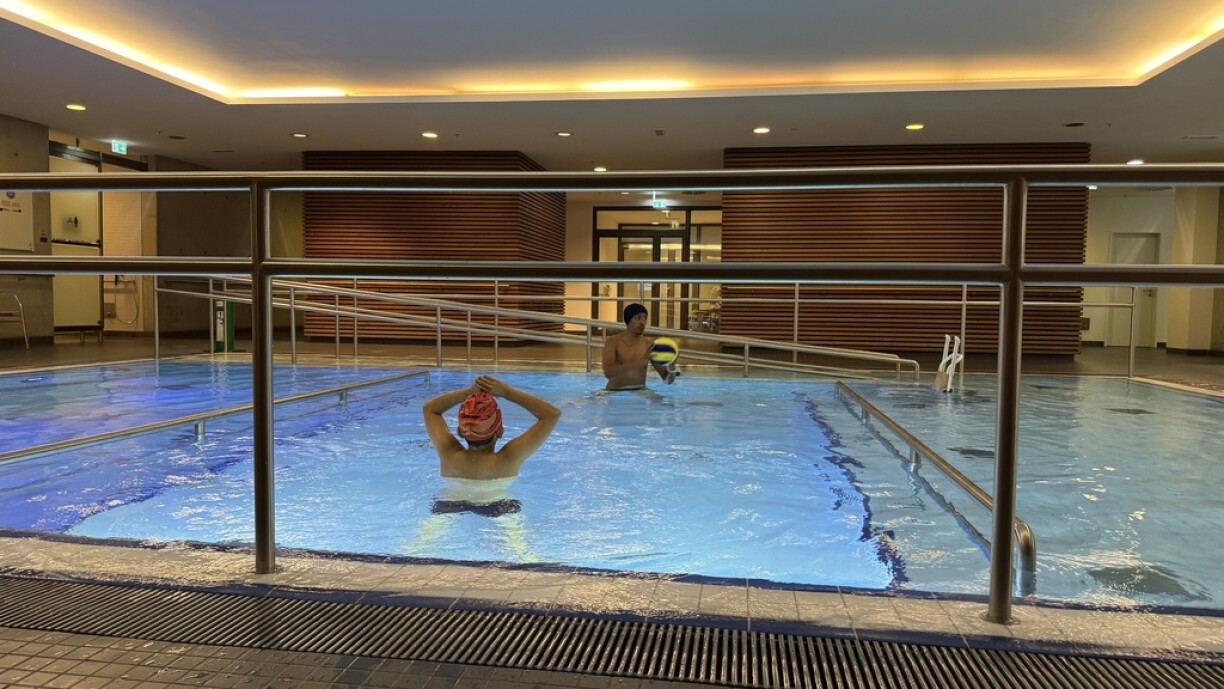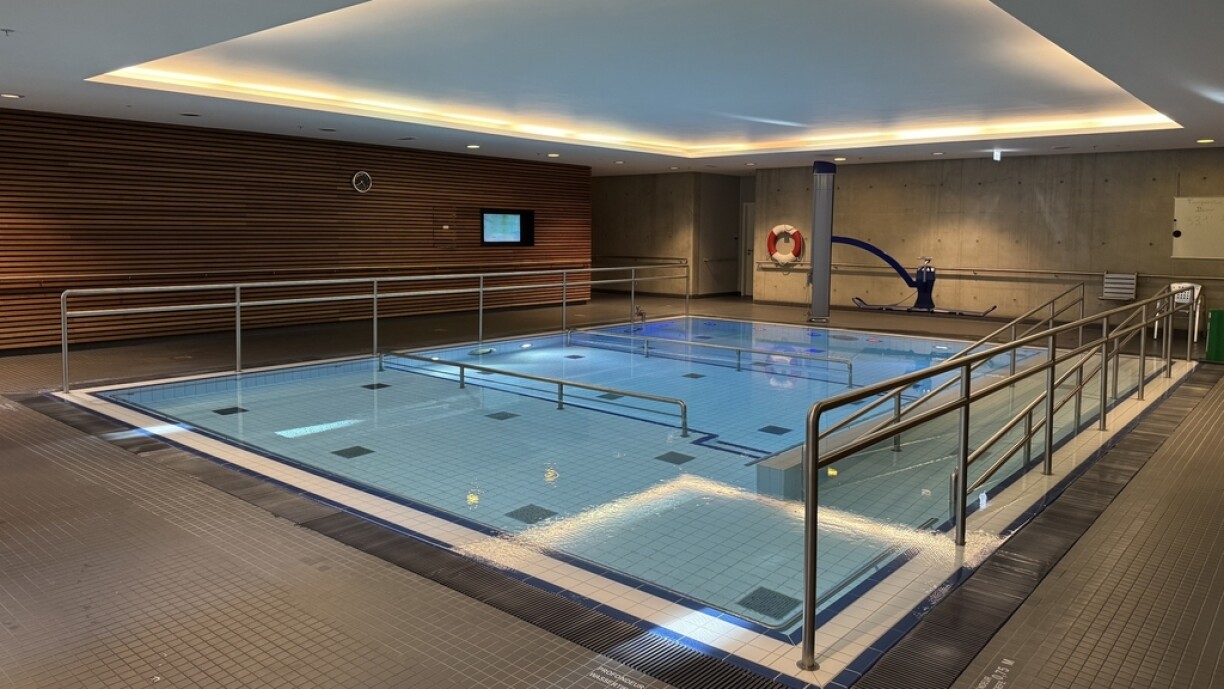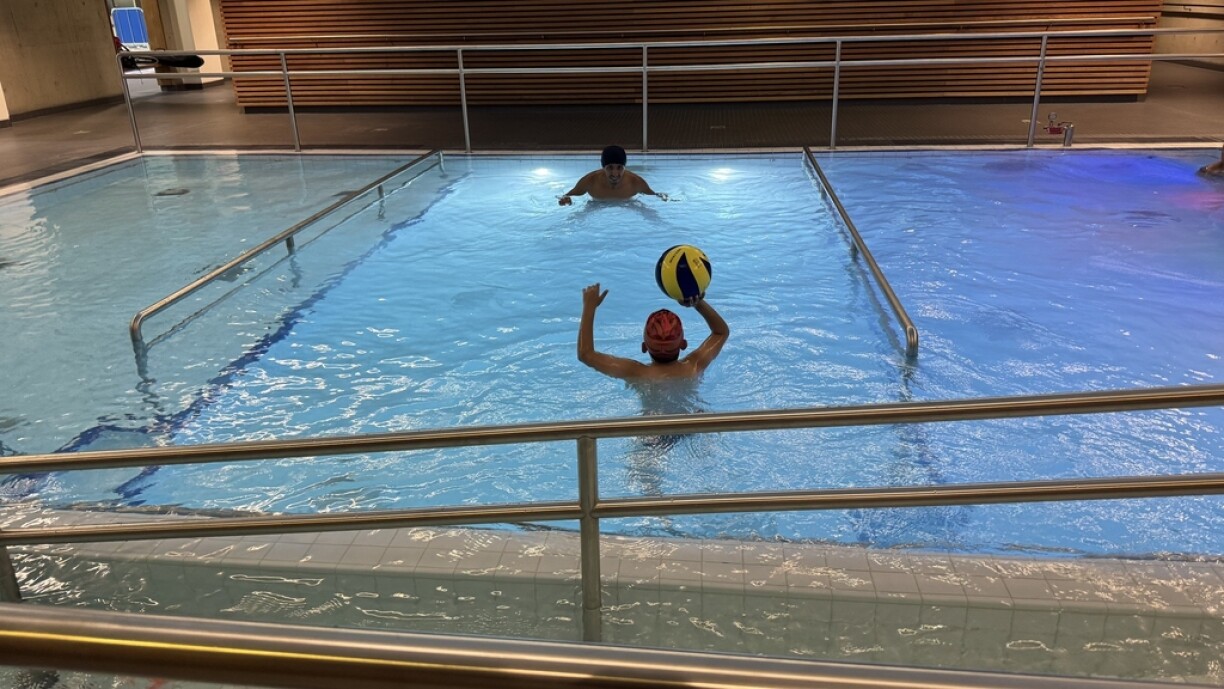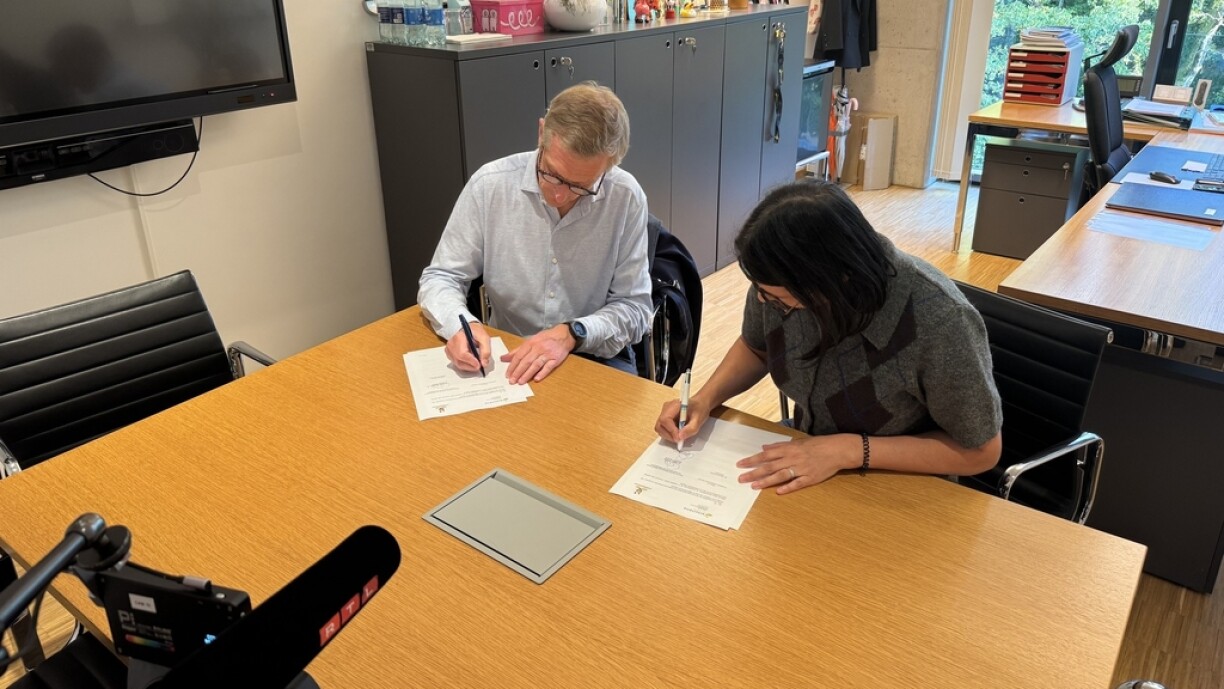
The new agreement between the National Center for Functional Rehabilitation and Readaptation (CNRFR), known as Rehazenter, and the Fondatioun Kriibskrank Kanner, or Children with Cancer Foundation, was signed on Wednesday, allowing the foundation to use the centre’s specialised facilities in Kirchberg. This includes two adapted swimming pools with warmer water and advanced filtration systems, ideal for children with weakened immune systems or limited mobility.
Under the agreement, the Rehazenter will make these pools available to the foundation and its patients for several hours each month. For the children, this means being able to come with familiar caregivers and do their exercises in comfortably warm water at around 33°C. The pools also provide a safe, fully accessible environment, with railings for support, ramps, and lifts for wheelchair users.

For foundation staff, such as graduate educator Rachid Habbaz, these conditions are a real advantage. Habbaz explained that water therapy offers immense benefits for children’s physical rehabilitation thanks to its low resistance, which allows safe, gentle movement.
He added that his approach goes beyond the medical side of treatment: children are involved in choosing the activities and shaping the sessions themselves, making therapy an enjoyable experience. “The idea is for them to have fun”, he said, noting that relaxation and enjoyment are just as vital as physical recovery, since illness often brings stress and emotional strain.
Many children feel especially comfortable in water, which makes this partnership an important step forward, Habbaz added. He explained that they can combine muscle and endurance exercises with relaxation, so that it becomes a rewarding experience rather than just a therapy session.

Pierre Dochen, director of the Fondatioun Kriibskrank Kanner, also emphasised the importance of keeping a sense of joy throughout recovery. He explained that the foundation, which has supported families for 35 years, aims above all to ease the administrative burden on parents so they can focus on their children. He added that the next step will be to assess which children can benefit most from the new programme.
The Rehazenter already has similar partnerships with other associations, including the Paralympic Committee and the association Back to Sport, which helps people with physical disabilities regain independence through sport.
Yves Ogé, an educator with the association, explained that most of their members are people recovering from serious accidents who must relearn movement step by step. He said that the social side is just as important as the physical training, as he points to a girl who exercises with her mother and to a man who trains with his wife, adding that these activities bring people together, help them progress collectively, and allow them to share meaningful moments with their families despite their disabilities.
For Back to Sport members, privacy and emotional safety are also crucial. Ogé explained that their members often need a discreet space where they can rebuild confidence and reconnect with their bodies, as rediscovering one’s body after an accident can be deeply traumatic.
The initiative to extend these partnerships came from Elsa Do Carmo, nursing director at the Rehazenter since April 2025, who previously spent 15 years at the clinical paediatric Kannerklinik. She explained that she immediately thought of working with the Fondatioun Kriibskrank Kanner because of their past collaboration: she reached out to propose using the centre’s pools and facilities for young patients. Together with Back to Sport, the new agreement was drafted and will initially last one year, renewable annually.

While the current agreement restricts the use of the facilities to a few hours each month, all partners agree that the number of sessions could gradually increase over time. Dochen explained that if everything goes well, the partnership could last for many years, adding that it truly offers children a valuable opportunity to swim, recover, and find a safe, comforting space of their own.